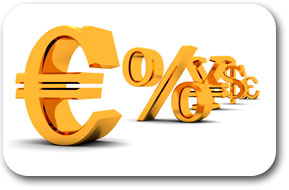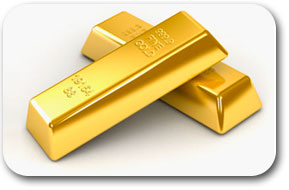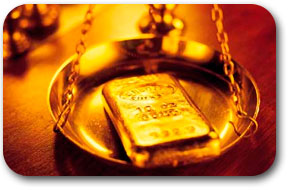
Myra & Co. focuses on 'Diversification'; 'Don't put all eggs in one basket' in wealth management parlance. This diversification or eggs signify investment in different asset classes so that even if one asset class fails to perform well, you will not lose all the hard earned money while you earn returns in other asset class. A diversified portfolio stands better chance to perform well in the volatile markets. The fund allocation in each of the asset class may differ based on client's goals & aspirations, income level, risk tolerance, time horizon, etc. even within the same age group.
Commodities, whether they are related to food, energy or metals, are an important part of everyday life. Similarly, commodities can be an important way for investors to diversify beyond traditional stocks and bonds, or to profit from a conviction about price movements. People usually abstain from investments in commodities due to the significant amounts of time, money and expertise involved.
Myra & Co. aims to simplify the process of participating in commodities for an investor through a number of different channels. The fact that the returns from most of the commodities in the last 53 years from 1951 to 2006 have been higher than the global inflation rate, establishes that investments in commodity are an effective hedge against inflation.

Gold-An Ideal Investment Avenue
Gold is one of the most popular precious metals for investment today. It can be passed on from one generation to the other by way of inheritance, bought for consumption purpose or as an investment avenue. Thus, we can attach following 7values to Gold:
Five Ways of Investing in Gold

1. Purchase of Physical Gold
It's the most conventional way of buying gold. It includes buying gold from our age old family jeweller in the form of readymade jewellery, made to order jewellery or coins, rings, and so on. Nowadays banks too, sell gold coins, biscuits, bars etc.
However there are certain drawbacks of owning physical gold
2. Investment through Gold Mutual Funds
Investing in gold mutual funds is like investing in any mutual fund actively managed by a fund manager through SIPs. In this, the funds are invested in gold mines to reap the benefits.
The features of this type are as follows:

3. Gold Exchange Traded Funds (ETFs)
Exchange Traded Funds or ETF is like trading shares on a stock exchange but treated as mutual funds.
In case of Gold ETFs, Gold is a security under consideration. One can purchase units of gold in multiples of 1 unit. 1 Unit = 1 gram of gold. (A few fund houses also trade ½ gram gold as one unit.) As one invests in mutual funds by way of SIPs or lump sum payments, in the same fashion investments in ETFs can also be done on a periodic basis. The units of ETFs like share trading can be traded on a stock exchange by opening a Demat A/c. The NAV of the gold ETF varies according to the variations in the gold prices.
Gold ETFs are considered as debt mutual funds for tax purposes. The gains from sale of units held for a period of less than 12 months are treated as Short Term Capital Gains & taxed as per individual's tax slab (it can be as high as 30.9% if one falls under highest tax slab). If units are sold after a year then the long term capital gain is taxed @ 10.3% with indexation & 20.6% without indexation.
Features of Gold ETFs are listed below

4. Investment through Derivative Markets
A gold future means gold bought at the price and quantity decided today, at a future date. Advantage is one doesn't have to pay the full consideration now and the seller too need not part with the gold today. Gold future can be good form of hedge in rising gold prices as one need to pay the price today. However if the prices fall in future as compared to today's prices then it turns out to be a business of loss. There are certain exchanges like MCX, NCDEX who deal in gold futures.
Features of Gold Futures are listed below
5. Electronic Gold (E-Gold)
It is a new way of investing in gold, invented and implemented by National Spot Exchange Ltd. (NSEL). Like ETFs, one can invest in E-gold through demat a/c and purchase as small as 1 gm of gold. This trading facility is available on Monday to Friday (except Exchange specific holidays) from 10.30 am to 11.30pm.
Features of E-Gold Futures are listed below
Features |
Physical Gold |
Gold Mutual Fund |
Gold ETF |
Gold Futures |
E-Gold |
Storage & Safety |
Required since physical gold is involved. |
Not Required since funds are with the AMC. |
Required since gold is in demat form |
Required since gold is in demat form |
Required since gold is in demat form |
Affordability |
Yes, as small quantity can be bought. |
SIPs can be decided by the client depending on his financial condition & other aspirations. |
Yes, as small quantity can be bought. |
No, as bulk quantity like 100gms or more is involved. |
Yes, as small quantity can be bought. |
Purity |
Purity cannot be guaranteed. |
NA |
99.50% |
99.50% |
99.50% |
Expenses |
Expensive as making charges, locker charges, insurance premium (In case of insurance taken on gold) as these costs are involved. |
Expensive compared to Gold ETFs as fund management charges are more. |
Less expensive compared to physical gold & Gold Mutual Funds but more expensive than E-Gold. |
Expensive compared to all the other forms of gold investment as interest cost of borrowing gold plus insurance and storage charges are involved. |
Less expensive compared to other forms of investment. |
Liquidity & Transparency |
Easy liquidity & less transparency since unorganised sector. |
Easily liquidable. Redemption proceeds are generally credited within 4 working days. |
Easy & transparent process for liquidation since done on exchange. |
Easy & transparent process for liquidation since done on exchange. |
Easy & transparent process for liquidation since done on exchange. |
On Redemption |
Funds are received at the prevailing market rate. |
Funds are transferred to clients designated bank account. |
Funds are received |
Either funds can be transferred to designated account or facility to convert in gold is also available. |
Either funds can be transferred to designated account or facility to convert in gold is also available. |
Taxation |
Long term capital gain benefit can be availed only after a period of 3 years |
Long capital gain applicable after completion of 1 year. Long Term Capital Gain taxed at 10.3% without indexation & 20.6% with indexation benefit. Short Term Capital gain taxed as per individual tax slab |
Long capital gain applicable after completion of 1 year. Long Term Capital Gain taxed at 10.3% without indexation & 20.6% with indexation benefit. Short Term Capital gain taxed as per individual tax slab |
Trading in gold futures attracts a combined service tax and education cess at 12.36%, on the standard brokerage fee. Trading in gold futures takes place with the delivery or without delivery. When the delivery takes place, gains or profits is treated as a business income and taxed according to appropriate tax brackets. And, if the contract is settled without the delivery, proceeds are treated as an income from speculation and are taxed under short-term capital gains. |
Long capital gain applicable after completion of 1 year. Long Term Capital Gain taxed at 10.3% without indexation & 20.6% with indexation benefit. Short Term Capital gain taxed as per individual tax slab |
Wealth Tax |
Applicable for gold worth more than 30lakhs @1% |
Not Applicable |
Not Applicable |
Not Applicable |
Not Applicable |
Requirements |
No Demat A/c is Required |
Demat A/c is Required |
Demat A/c is Required |
Demat A/c is Required |
|
Suitable For |
Conservative clients |
Suitable for risk-averse clients yet who want to benefit from the actively managed fund. |
Risk Averse, Disciplined & Net Savvy clients |
Risk Takers & Speculators |
Risk Averse, Disciplined & Net Savvy |

"Silver is set to retain the most volatile price action among metals over the coming year & best possible investment which can be hedged against inflation"
Over the past century, technological explosion has magnified the scale of its usage. Its demand is outpacing the supply and leading to large gaps, which is one of the reasons why silver prices have been zooming up. Since 2008, the price rise has been further propelled by the global economic uncertainty and the depreciation of the rupee due to the US economy outpacing the European Union.
Central banks and their governments across the globe have stopped selling their silver reserves in the world marketplace, thereby freezing the supply, which has caused silver to become more scarce and valuable. When there is lack of confidence in fiat money and the financial system, silver can be a hedge against inflation.
During global turmoil, central bankers devalue their currency and the best way to escape this is to stick with gold and silver. Also, mining of the metal is expected to become more limited due to scarcity constraints in the future.
Silver
Silver is a precious metal and an industrial metal, and both sectors are dynamic and volatile in nature, like other precious metals, it may be used as an investment. For more than four thousand years, silver has been regarded as a form of money and store of value. However, since the end of the silver standard, silver has lost its role as a popular legal tender in many developed countries such as the United States. In 2009, the main demand for silver was for industrial applications (40%), jewellery, bullion coins and exchange-traded products.
Like most commodities, the price of silver is driven by speculation and supply and demand. Compared to gold, the silver price is notoriously volatile. This is because of lower market liquidity, and demand fluctuations between industrial and store of value uses. At times this can cause wide ranging valuations in the market, creating volatility.
Silver often tracks the gold price due to store of value demands, although the ratio can vary. The gold/silver price ratio is often analyzed by traders, investors and buyers.